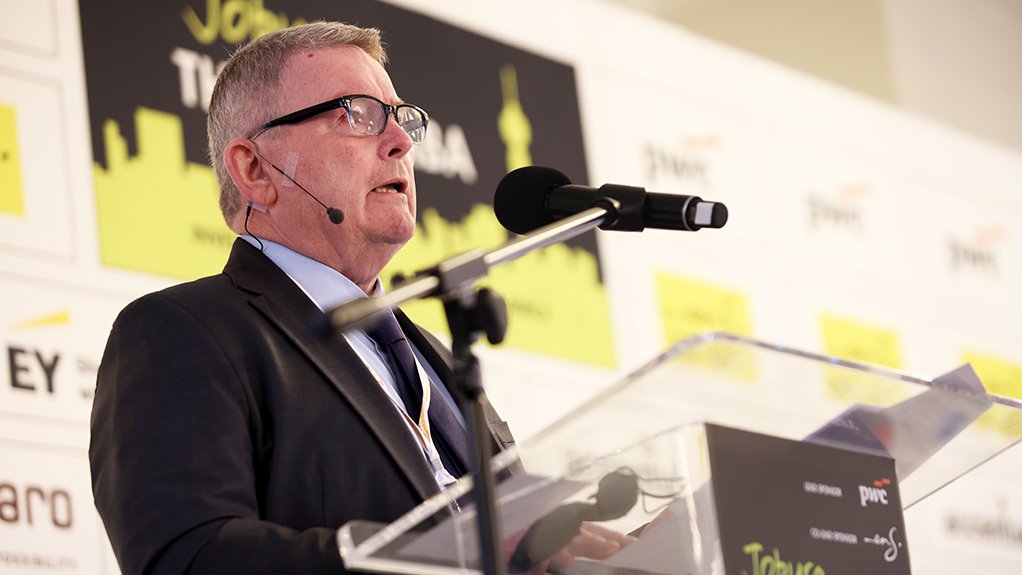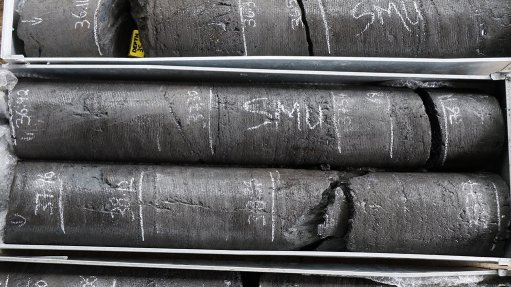Promote growth, transformation together, Minerals Council South Africa urges
JOHANNESBURG (miningweekly.com) – Growth of the mining industry and the transformation of the economy are inextricably intertwined but need a stable, predictable regulatory environment that promotes both together, Minerals Council South Africa president Paul Dunne told the Joburg Indaba audience on Wednesday.
A mining industry that attracts local and international capital for the development of new mines and the expansion of existing operations would, he said, create more employment opportunities, attract new entrants, and multiply all the benefits that the mining industry delivers for the country.
The Minerals Council would not relent in lobbying and advocating for the best possible regulatory and operating environment to realise this potential.
“Mining is a very people-centric industry and we’re deeply connected to the fabric of society at ground level. It’s important that we succeed.
“Providers of capital will not put their money into risky environments where their returns are threatened by regulatory uncertainty, crime and corruption and failing infrastructure. At the very least, the cost of capital increases significantly rendering projects unviable that otherwise would proceed," Dunne pointed out.
“The mining industry has been severely constrained during the past three decades by regulatory uncertainty, weak administrative processes, unnecessary delays in licensing authorisations, as well as the severe repercussions that State capture has had on electricity supply and costs, and rail and port disruptions.
“The mining industry has enormous untapped potential in the minerals we already mine and the minerals of the future, provided we can unlock exploration and attract investment," Dunne said.
It costs R20-billion and ten years to build a decent sized mine. Very few mining companies have that type of money lying around on the balance sheet. Companies need to operate in an environment that allows them to attract capital in the form of debt or equity to fund projects.
Currently, South African mining employs 465 000 people in relatively well paid jobs that come with a high economic multiplier effect and the industry spends some R7-billion a year on training and skills development.
“Mining is so much more than just digging minerals out of the ground. Companies have extensive social and labour plans, which uplift communities through enterprise and supplier development programmes, as well as large investments in infrastructure, schools and healthcare facilities.”
In many cases, mining operations take place in remote parts of the country, where they are the only source of jobs and income.
Often, mining companies step in to provide services and infrastructure that failing or dysfunctional municipal governments are not delivering.
Mining accounts for 6% of GDP and R800-billion worth of exported mineral products representing 45% of total exports.
Corporate tax payments amounting to R43-billion make up 14% of total corporate tax collection.
“'Mining matters’ is not just a slogan, it is a fact,” Dunne pointed out, while emphasising the critical importance of having a pragmatic, stable regulatory environment that attracts investment rather than discourages it though onerous, globally uncompetitive policy.
“It’s our considered view that the proposed Minerals Amendment Bill in its original form does not encourage or sustain the growth and investment that the mining industry needs to realise its full potential to create employment, to stimulate the economy and to fulfil its social mandate,” Dunne pointed out.
The Minerals Council has submitted a detailed document outlining its concerns and expects a protracted period before a redraft emerges, potentially extending into the new year.
Meanwhile, its members are spending R3-billion-plus a year on building houses, schools, roads, bridges, clinics, water and sanitation infrastructure.
An employment equity study undertaken in 2023, of members representing about half of the industry’s workforce, showed that in many occupational levels, targets were exceeded.
“Women now comprise about a fifth of employees, which is heartening considering that before 1994 – women were legislated out of the underground work force. A degree of stigma and even superstition has been overcome, and we are better off for it.
“Given the contribution that mining makes to the national economy, to employees and communities, it’s not difficult to understand why the Minerals Council is so emphatic about the need for a regulatory and operating environment that attracts investment and encourages and sustains growth,” Dunne told the indaba audience.
Article Enquiry
Email Article
Save Article
Feedback
To advertise email advertising@creamermedia.co.za or click here
Announcements
What's On
Subscribe to improve your user experience...
Option 1 (equivalent of R125 a month):
Receive a weekly copy of Creamer Media's Engineering News & Mining Weekly magazine
(print copy for those in South Africa and e-magazine for those outside of South Africa)
Receive daily email newsletters
Access to full search results
Access archive of magazine back copies
Access to Projects in Progress
Access to ONE Research Report of your choice in PDF format
Option 2 (equivalent of R375 a month):
All benefits from Option 1
PLUS
Access to Creamer Media's Research Channel Africa for ALL Research Reports, in PDF format, on various industrial and mining sectors
including Electricity; Water; Energy Transition; Hydrogen; Roads, Rail and Ports; Coal; Gold; Platinum; Battery Metals; etc.
Already a subscriber?
Forgotten your password?
Receive weekly copy of Creamer Media's Engineering News & Mining Weekly magazine (print copy for those in South Africa and e-magazine for those outside of South Africa)
➕
Recieve daily email newsletters
➕
Access to full search results
➕
Access archive of magazine back copies
➕
Access to Projects in Progress
➕
Access to ONE Research Report of your choice in PDF format
RESEARCH CHANNEL AFRICA
R4500 (equivalent of R375 a month)
SUBSCRIBEAll benefits from Option 1
➕
Access to Creamer Media's Research Channel Africa for ALL Research Reports on various industrial and mining sectors, in PDF format, including on:
Electricity
➕
Water
➕
Energy Transition
➕
Hydrogen
➕
Roads, Rail and Ports
➕
Coal
➕
Gold
➕
Platinum
➕
Battery Metals
➕
etc.
Receive all benefits from Option 1 or Option 2 delivered to numerous people at your company
➕
Multiple User names and Passwords for simultaneous log-ins
➕
Intranet integration access to all in your organisation





















